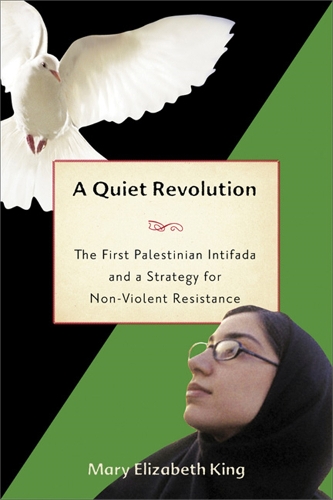
A Quiet Revolution: The First Palestinian Intifada and Nonviolent Resistance
(Paperback)
Publishing Details
A Quiet Revolution: The First Palestinian Intifada and Nonviolent Resistance
By (Author) Jimmy Carter
By (author) Mary King
Introduction by Jimmy Carter
Introduction by Mary King
Avalon Publishing Group
Nation Books
12th July 2007
United States
Classifications
Tertiary Education
Non Fiction
956.953044
Physical Properties
Paperback
488
Width 152mm, Height 229mm
Description
In A Quiet Revolution, renowned civil rights activist Mary Elizabeth King questions the prevailing wisdom that the first Palestinian Intifada was defined by violence. She argues that initially, the uprising was characterized by a massive nonviolent social mobilization, rooted in popular committees often steered by women. These committees adopted strategies that began to lead to political results among them the beginnings of a negotiated settlement. King traces the tragic movement away from peaceful protest following the killing of four Palestinian laborers in Gaza, and charts the PLOs increasing contempt for nonviolent struggle. She details the complicity of the media in this escalation of violence TV crews would not cover peaceful protests, but Palestinian boys throwing rocks at Israeli soldiers would attract foreign cameras. King draws upon the history of non-violent movements and argues that only through nonviolent strategies can a negotiated peace be achieved with Israel. King believes that the residual knowledge of the power of nonviolent resistance from the first Intifada will provide the bedrock upon which to build this eventual, lasting peace.
Author Bio
Mary Elizabeth King is an expert on Nonviolent Political Strategies and worked alongside Martin Luther King, Jr. as a student. She is a Professor of Peace and Conflict Studies at the University for Peace of the UN, and a Distinguished Scholar at the American University centre for Global Peace in Washington, DC. She is the author of "Freedom Song" (which won the RFK Memorial Book Award) and "Mahatma Ghandi and Martin Luther King, Jr.: The Power of Nonviolent Action." King lives in Washington, DC.
